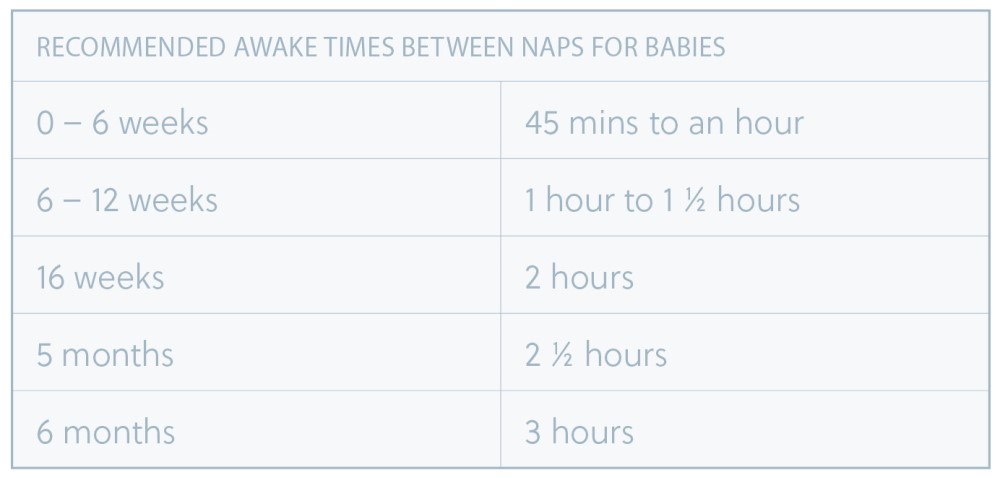Sleep regressions: the what, when, why and how.

Regressions or progressions? Either way, they can turn bedtime upside down and cause many a sleep-deprived parent to lose their mind, but as Dorothy Waide explains, they’re actually a sign your bubba is on the right track.
PROGRESSIVE MILESTONES VS REGRESSIONS
The word ‘progression’ is defined as “developing or happening gradually”, whereas ‘regression’, on the other hand, is "a return to a previous or less advanced state". In my experience, using positive terms makes things a little easier when we are working with babies and toddlers.
For many years we have looked at developmental milestones as positive, as our babies progressing. Now, sadly, many people refer to these as regressions, mainly because they impact sleep.
As a parent, dealing with sleep changes can be tough as you've probably had many months of sleep deprivation. I think our parents of today deserve more support and guidance than what they receive in regards to sleep. These days there are a lot more financial pressures and both parents usually have to work in some capacity. If we could take the time to show our babies and toddlers how to self-settle and resettle, fewer parents would have to deal with the extreme sleep deprivation I see in my line of work.
Clearly all parents want their children to achieve the appropriate progressive or developmental milestones at the right time, but these might not be as easy to track as you think. It is sometimes easy to diagnose changes in your baby’s rhythms as ‘regressions’, especially when they relate to sleep. For example, your baby may have slept through the night from a very early age, and now suddenly has started waking at night. Before labelling this as a regression, ask yourself the following questions:
- Is my baby still self-settling without much intervention from me?
- Can my baby connect two sleep cycles together for most of their naps?
If you answered yes to these questions, it's probably a progression and therefore a good thing! When babies who have previously been catnapping during the day and sleeping long stretches overnight suddenly start to wake up more overnight, this is simply a sign that they're growing and developing but are not yet equipped with all the right tools to sleep through the night without needing you. Don't worry this is normal – they’ll get there!

WHAT IS A REGRESSION THEN?
If your baby has been self-settling and resettling for naps with little intervention, and has been sleeping overnight and then suddenly stops all of those things, this could be a regression. Bear in mind, however, that your little one may be unwell, teething or having a growth spurt causing the extra wakes. If they are between four and six months, this may also be a sign that they are ready for solids.
PROGRESSIVE MILESTONE BY AGE
In some cases, babies will go through the progressive milestones without any fuss, while for others it may take them anywhere from two to four weeks to progress through them and they may be disruptive. Remember, all babies are different. Below are some common progressive milestones:
6 weeks
- This is your baby’s first progressive milestone where they seem suddenly more alert and start looking around.
4 months
- Up until now you have probably been perfectly happy with your baby catnapping during the day and sleeping long stretches during the night. You have been doing all the ‘doing’ and your baby has been doing all the ‘being’. You may have been using large movements to get your baby to settle, such as rocking, walking, pushing a buggy over a bumpy surface, driving, gently swinging your baby in a hammock or feeding them to sleep.
- You may find that suddenly nothing seems to work to get your baby to fall asleep for their daytime naps and your baby is waking often overnight.
- You may find that you need larger movements to settle them. Perhaps they also need longer drives and longer feeds, which subsequently lead to more frequent and longer waking periods overnight.
- Developmentally, your baby will be showing more of an interest in their toys.
- They are on the move and will be rolling from one side to the other. You will hear them starting to sound out words – my favourite is ‘ah-goo’.
- Physically, babies have usually doubled their birth weight by now, are rolling from front to back, holding up their head and chest, and can grasp a rattle or ball.
- This four month progressive milestone, which many people refer to as a ‘regression’, marks the stage where your baby’s brain becomes more active and their sleep habits progress beyond those of a newborn.
- They are changing to a more adult-like sleep pattern and, just like adults do, they wake during the night. The difference is that unlike adults who are able to resettle themselves, the majority of babies still need to learn this skill. For many parents, it’s around this age that they decide to teach their babies how to self-settle, as babies are now developmentally ready to learn this.
- When your little one wakes, you might be inclined to rush in too quickly, thinking that your baby needs feeding, when in actual fact the only thing they may require is reassurance and help in returning to sleep.

6 to 8 months
- At around this age, your baby will start to interact more with others and take an interest in social activities.
- Your baby has now started to roll and possibly crawl, developing their core strength.
- They are often found on all fours in the cot, rocking back and forth, which may create sleep issues until they figure
it all out. - They may also show signs of separation anxiety at this age (this heightens again around 10 months, and then in most cases eases up around the two-year mark).
- Teething can be an issue for some babies.
8 to 10 months
- As well as progressive brain development, your baby is now also absorbing language at a much faster pace than previously.
- They may now be pulling themselves up, and have started navigating around available floor spaces.
- They also understand that when you leave the room, you have not disappeared forever. For instance, they are learning that when they cry, you will come back to them. In other words, they are beginning to understand cause and effect.
- Some would say that they now know how to assert their identity as they have a sense of object permanence.
11 to 12 months
- Your baby will now have a greater awareness of their surroundings.
- They will be pulling themselves up or beginning to walk.
- They are starting to understand the order of things, like stacking blocks or putting shapes into a shape container.
- As they are now busy little people, they may start to refuse a nap or be more difficult to put down for a nap.
- They may also start to wake through the night again.
- They will also be showing greater movement, including stretching and reaching.
- They will be starting to bring their hands to their mouth.
- They will follow objects from side to side with their eyes.
- They'll be smiling, laughing and making cooing noises.
- Baby will also be mimicking facial expressions.
- Your baby will be showing improved clarity of eyesight and recognising people from a distance.
15 to 18 months
- Your toddler is learning to walk and talk so there's lots of activity going on within themselves.
- They may also be transitioning from two naps to one nap, or some from 18 months might be dropping their daytime nap altogether.
HOW TO DEAL WITH SLEEP DISRUPTIONS
When you’ve been happily helping your little one to sleep and getting an okay amount of sleep yourself, and then it stops working, it can be really upsetting for everyone involved. Of course it also doesn’t help that after each bedtime battle, they wake after one sleep cycle and you need to do it all over again (all night long sometimes!).
This is where making sure your baby is having the appropriate amount of sleep and awake time for their age range (see table across the page) is key.
SELF-SETTLING
Teaching a baby to self-settle and resettle is so helpful and means you'll often get through these common disruptions quicker. For younger babies, I do this either in their cots or in arms, and for older babies/toddlers either in the cot or lying down with them. Sometimes you will need to re-teach them if they go through big changes or are unwell and need extra support, but each time you teach them they should pick it up quicker and bedtimes will soon get back on track.
Teaching a baby how to self-settle and resettle (with gentle methods – no 'cry it out') takes a minimum of 12 to 16 weeks. For older babies (over 8 months) it can take a lot longer if starting from scratch. It can be a good idea to check your daytime routine to make sure your baby is on the right sleeping and nap routine for their age. Ensuring that your baby/toddler’s room is pitch black for daytime naps will also make a big difference. Not having this is often the reason why babies sleep better at night and catnap during the day.
For parents dealing with sleep deprivation – slow down and put aside the time to be with your baby or toddler while they are going to sleep. It is possible to teach them to sleep independently and be there for them at the same time. Presence is powerful.
And remember too, babies need two nutrients – food and sleep. If they sleep well, they feed well, and if they feed well, they will sleep well.
Dorothy Waide is a Karitane Mothercraft Nurse with over three decades of experience. She's also the OHbaby! expert sleep advisor and resident baby whisperer. Dorothy is the author of two popular parenting books, You Simply Can’t Spoil A Newborn and Simply Parenting: From 12 Weeks to 12 Months. Visit Dorothy at babyhelp.co.nz.

